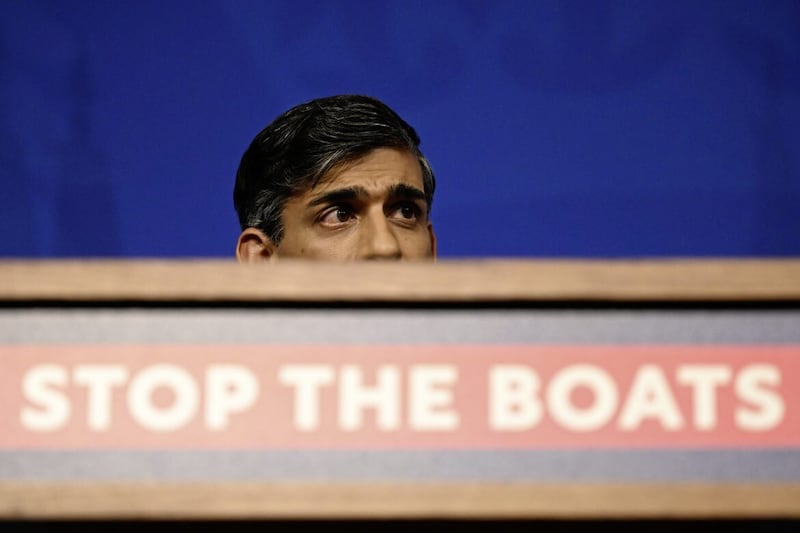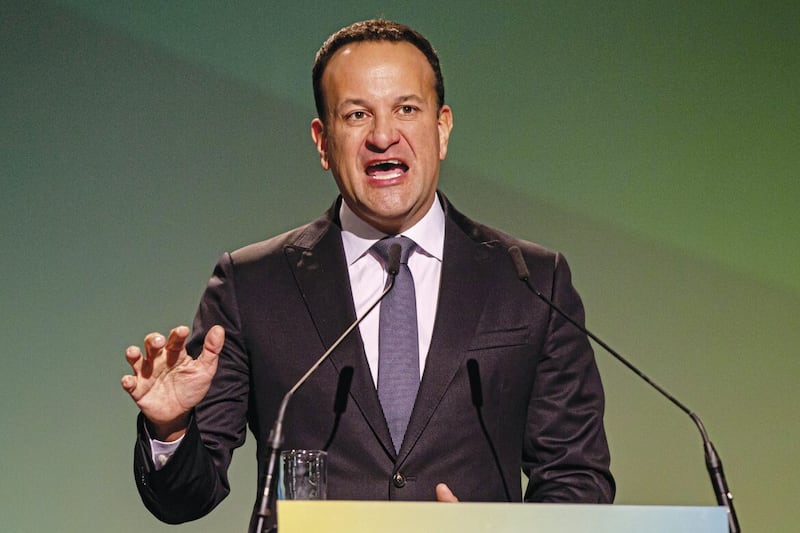When she appeared on the Late Late Show a few weeks ago, Ryan Tubridy asked Mary Lou McDonald did she think she would be taoiseach after the next election.
She replied that “The very best outcome from the next election is a government without Fine Gael or Fianna Fáil."
With Fine Gael sitting at around 23 per cent in last week’s Sunday Times poll to Sinn Féin’s 34 per cent, Leo Varadkar will have his work cut out for him in improving his party’s fortunes when he takes on the role of taoiseach again on Saturday.
Notwithstanding media reports suggesting that there is a certain amount of disquiet within the party ranks over Varadkar’s at times poor judgment, there really isn’t anyone else waiting in the wings within the party to challenge him for the position. The question therefore is what he’ll do once he gets back into the role.
With under two years to go until the election, it’s more likely than not that there will be a minimal cabinet reshuffle.
Rather than swap with Varadkar and take on the Department of Enterprise, it is believed that Michéal Martin will seek the foreign affairs portfolio. He previously served in that role from 2008 until 2011 and it gives him an opportunity to tee-up a European Commissioner role for himself following the next election.
Simon Coveney with his intimate first-hand knowledge of all things Brexit and positive working relationships across the EU will be a loss for the department as we go through the current round of negotiations between Britain and the EU. Having said that, the British probably will like Martin more.
Varadkar’s focus will have to be on improving his party’s electoral fortunes in a climate where two issues seem set to dominate political discourse over the next two years, namely the cost-of-living crisis and housing.
Ireland has managed to stay out of recession and the government will want to take any measures necessary to ensure that continues to be the case. But with small businesses already closing due to unsustainable energy costs, this is going to be a fire-fighting exercise for the foreseeable.
In terms of housing, spiralling rent and lack of homes for sale mean that more and more young people are priced out of the market. They’re living at home for longer, sharing with friends for longer, putting off getting married in some cases.
Housing minister Darragh O’Brien seems to be constantly on the back foot. The huge numbers of refugees and asylum seekers coming into the country from Ukraine and elsewhere has led to even greater pressure on housing, albeit O’Brien’s department is not responsible for that housing, it affects the supply across the island.
Sinn Féin’s Eoin O’Broin has literally written the book on housing and is a powerful debater. People will argue, as in all of politics, that his ideas are unworkable or that they are not properly costed. But young voters (and their parents who thought they’d be empty nesters by now) are at least seeing some hope of change and that’s what is making the difference in opinion polls.
What will be interesting in terms of the north is how Varadkar as taoiseach deals with the Shared Island unit created by Michéal Martin. Since its inception, the unit has hosted a series of dialogues on issues including education, the economy, women’s rights amongst others. Whilst the subject matter has been interesting and informative for the most part, these haven’t really been dialogues, rather a series of monologues followed up by some carefully curated questions from attendees.
It has been speculated that Neale Richmond TD, Fine Gael’s European Affairs spokesperson may become minister of state with responsibility for the Shared Island unit in a move signalling the very different tack taken by the two main coalition parties on the future of the island. If it were to happen, such a move to signal a move away from monologue on key issues to dialogue and government planning on the future of the island.
Neither of the two main coalition parties are committed to producing a government white paper on the future of Ireland, but public statements by the Fine Gael leader are much more open to the idea of discussing a new Ireland than Michéal “now is not the time for a border poll” Martin.
But a Shared Island unit that doesn’t just dole out funding for academic research projects and cleaning up canals could have the capacity to do a lot of the leg work that, to date, the government hasn’t done. Varadkar will be well aware of this and the political capital it will give him in the next election against Sinn Féin.
As he re-assumes the role of taoiseach for the second and probably final time, Leo Varadkar’s greatest challenges, however, come from himself. He has a good support base, but alienates people with his prickliness and can come across as being aloof, uncaring and uncharitable. A charming man who sometimes lacks grace.
His greatest attribute, though, is that he’s not Michéal Martin.







